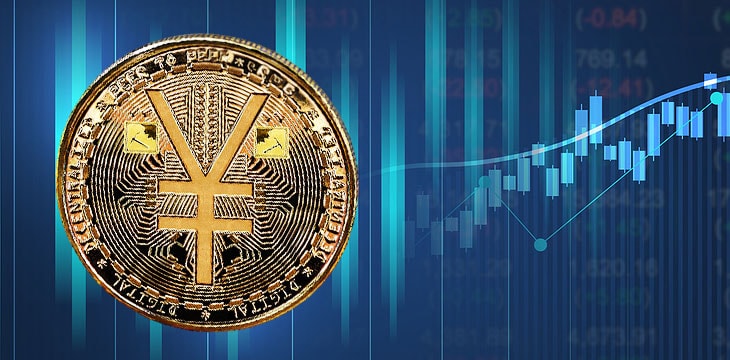|
Getting your Trinity Audio player ready...
|
Macau’s gambling market could face a fundamental realignment as the local government moves closer to authorizing the use of China’s digital yuan in casinos.
On Tuesday, Macau’s Chief Executive Ho Iat Seng informed the Legislative Assembly of plans to “study the feasibility of issuing a digital currency.” Ho said the government of the ‘special administrative region’ of China wants to bolster its ability to deter money launderers, tax dodgers and other criminal elements, including terrorists.
Macau’s gambling sector remains the chief engine of the local economy and Bloomberg reported that government representatives had approached several Macau casino operators regarding the potential of allowing gamblers to purchase casino chips using a digital yuan.
China began testing its digital yuan project in Shenzhen last year and things went well enough that the government expanded the pilot project to include multiple cities and a growing number of businesses. Unlike many digital currencies, the digital yuan allows the People’s Bank of China to track all transactions back to individual users, reducing the likelihood that the currency will be used for illicit purposes.
It remains to be seen whether Macau might simply allow its casinos the option of adding the digital yuan to their list of funding options or whether the digital currency would become the only permissible option. The latter could have a significant impact on local junket operators, with a knock-on negative for the casinos themselves.
China’s strict capital controls keep a tight lid on mainland residents’ ability to transfer money off the mainland, which led to the creation of the junket sector. Essentially, junkets provide credit to high-rolling gamblers, with debts repaid once the gambler returns to the mainland.
Macau casinos allow junkets to run exclusive VIP rooms in their venues, collecting a percentage of gamblers’ losses while offloading responsibility for collecting on gambling debts to the junkets. Casinos were only too happy to delegate this responsibility, as gambling debts aren’t legally enforceable on the Chinese mainland.
Macau’s junket market has struggled since the arrival of China’s President Xi Jinping, who in early 2014 launched a crackdown on corruption that left many high-rollers leery about being seen traipsing in and out of a Macau casino VIP room. Macau once boasted hundreds of licensed ‘gaming promoters’ but the market is now dominated by a relative handful of major junkets following a Darwinian cull of weaker operators.
Junkets could still remain relevant in a mandatory digital yuan environment by doing the valuable work of identifying VIP gamblers on the mainland and steering them to certain casinos. But these gamblers’ spending habits would be on full display for the Chinese government, likely leading to a significant reduction in these gamblers’ willingness to be seen risking millions of yuan on a single hand of baccarat.
China’s existing capital controls also impact so-called ‘mass market’ gamblers, which led to a thriving side business for Macau pawnshops. One popular dodge sees gamblers purchase high-value items (watches, jewelry, etc.) from pawnshops using their UnionPay cards, then immediately returning the items to the shop for cash (with the shop keeping a 10% commission on the original sale price).
Another means of circumventing the controls saw shady financiers tinker with mobile UnionPay terminals to make it seem as if purchases were being made on the mainland. Beijing has been cracking down hard on these financiers, with unfortunate results for individuals whose transactions could be traced back to these unauthorized terminals.
The prevailing theory is that the digital yuan’s use in casinos would increase mass market gamblers’ ability to use their mainland savings without going through these illegal channels. However, their activity would be subject to monitoring by mainland authorities, the impact of which might negate any possible benefit.
See also: CoinGeek Live panel, The Future of Banking, Financial Products & Blockchain

 03-02-2026
03-02-2026 




